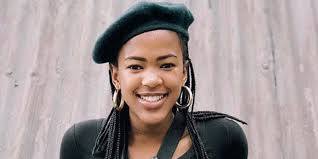#AmINext: South African women push back against gender-based violence

On August 8, 19-year-old Uyinene Mrwetyana went to a post office in Cape Town, South Africa — the city in which she was studying. While there, a post office worker, who has since been identified as Luyanda Botha, led Mrwetyana to believe her package wouldn’t be ready until later. When she returned, no one else was there and Mrwetyana was abducted, raped, and murdered by this man.
This story made headlines in local and international media outlets, like Al Jazeera and the BBC. In response, women took to social media to ask #AmINext — a question that seemed plausible because such acts of violence happen all too often in South Africa.
South Africans are generally socialized to worry about our safety and security every day of our lives. From insurance ads — like a recent one from the local insurance company King Price, depicting burglars enjoying a break-in over Christmas while homeowners were away — to red signs that read "high smash” or “high hijacking zones" plastered across our cities, we’re constantly reminded that we’re in danger. Statistics root our fear in fact: Cape Town was ranked among the deadliest cities in the world in a survey done by the Mexican Council for Public Security and Criminal Justice in 2019.
Although this violence takes many forms, gender-based and sexualized violence have gained new focus in South Africa in recent years. Femicide and rape crimes have increased at an alarming rate in the past four years; in 2016, a woman was murdered every four hours in South Africa, and by 2018, that rate rose to every three hours. In 2018, one in three women were sexually attacked, two in five women were beaten by their intimate partners, and one in 15 were murdered by their intimate partners. Children are no exception. According to a 2016 study, one in three South African boys and girls have experienced sexual abuse, and the national statistical service in the country found that child victims also made up 41% of 124,526 rapes reported in the same period.
Sexual violence against the LGBTQ+ population is also a significant problem in South Africa — as it is all over the world. “Corrective rape,” or the rape of LGBTQ+ people in an effort to “cure” them of their sexual orientation by predators who believe that homosexuaity is unnatural, still persists in the nation and has been recognized by international bodies like the United Nations. Unfortunately, the LGBTQ+ community is often neglected by the South African government; few financial resources are invested in efforts ot help the community, and the criminal justice system often fails to take reports of corrective rape seriously.
These numbers don’t even account for the violence that goes unreported. There is still stigma attached to reporting incidents of intimate partner violence, as women are socialized to stay with their partners no matter what. In 2019, Ipsos, the world’s third-largest market research company, conducted a study on South African attitudes toward women in the context of rising gender-based violence, and found that 63 percent of South African respondents believe that a woman should obey her husband or partner. In many black South Afrcan cultures especially, marriage is about a community, not just the bride and groom, and brides are explicitly advised by their families to stand by their husbands and listen to their in-laws, no matter what may happen. For many of these women, divorce isn't an option because they don't have the option to return to their parents if they choose to leave the marriage. The lack of resources provided to survivors once they leave their abusers also keeps women in violent relationships.
South African women also have to contend with a broken justice system that leaves victims vulnerable and unprotected by the police. In 2017, for example, the case of 23-year-old Karabo Mokoena gained media attention. Mokoena had reported her boyfriend for domestic abuse, but was in no way protected by law enforcement and was later brutally murdered. Her case was not unusual; in recent years, reports of a number of women murdered by violent partners after leaving them have been making the headlines.
Recently, South African women have taken it upon themselves to take action. In September, country-wide protests against violence against women shut down economic activity in some of our big cities and prompted the president of South Africa to promise harsher sentences against offenders to ensure perpetrators no longer prey with impunity. The state has also allocated a special court that will only be focusing on the violence against women and children to streamline the process, and the president called for the state to oppose bail in all sexual offenses cases and for the national register of GBV offenders to be reformed and possibly made public. He also said that there will be proper training and equipment for the police, while urging the country to confront any of its values that uphold patriarchy and prevent gender equality.
While these proposed steps are welcome, only time will tell how effective they are. Until then, South African women will continue to speak up loudly and often against the violence that still plagues us.
More articles by Category: Violence against women
More articles by Tag: Africa, Women of color, Domestic violence, Gender Based Violence, Rape, Sexualized violence, #MeToo


























